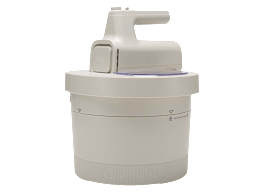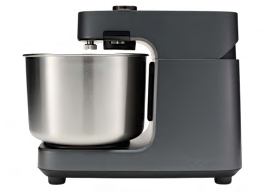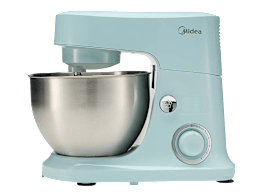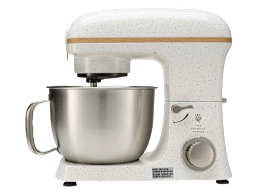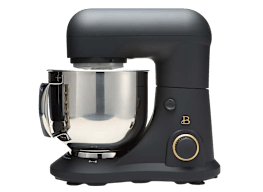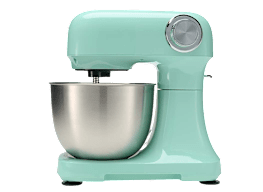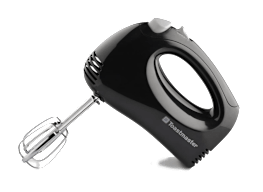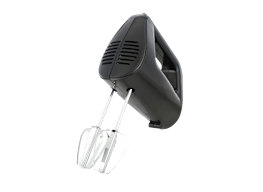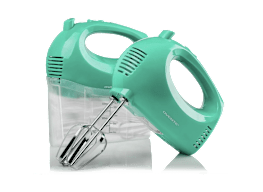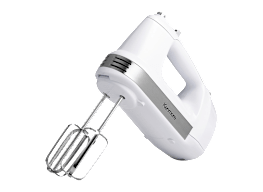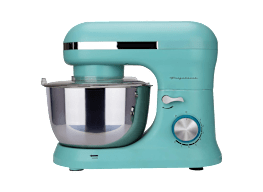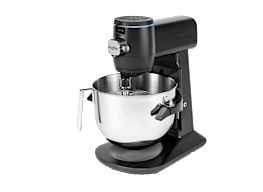
Mixer Buying Guide


Home & Kitchen Writer
With a sturdy stand mixer, you can plow through thick cookie dough, whip up a big bowl of heavy cream, and knead bread dough with little effort. Stand mixers that can accommodate power attachments to make sausage, pasta, or spiralized veggies are even more versatile.
If you don’t have the space to accommodate a stand mixer, or if you need a mixer only for light tasks such as whipping up frosting for a birthday cake, you can probably get by with a hand mixer. They’re not as bulky to store, yet they’re still efficient. If you have the space, you may even want one of each, so you can choose between the two depending on the job.
How We Test Mixers
Consumer Reports independently tests mixers on a variety of tasks at our in-house labs. To test mixing performance, we make chocolate chip cookies, because their thick dough can really challenge a mixer. To test kneading, we add blue and yellow food coloring to bread dough and time how long it takes the appliance to turn the dough an even green. We top off our performance tests by timing how long it takes to whip a half-pint of heavy cream into airy peaks.
We also judge noise when the mixer is running at the highest speed. To score mixers on convenience, we assess how easy it is to connect and remove the beaters and bowl and adjust the mixer speeds.
In the Mix: What to Consider
A major consideration when buying a mixer is how much you want to spend. The hand mixers in CR’s tests range from $13 to $149, and our test results show that you don’t have to spend top dollar to get a good one.
The stand mixers we test range from $50 to $950, and most of the ones in our review of the best stand mixers hit the sweet spot in the middle. Spend some more and you can add attachments like a fresh pasta maker, spiralizer, or meat grinder to transform your stand mixer into an essential dinnertime tool.
If you’re buying a hand mixer, you might also consider a model with extra attachments. A separate whisk makes whipping easier, and wire beaters are easier to clean than traditional center-post beaters. Keep in mind that hand mixers with a slow-start option are less likely to cause splattering or a cloud of flour, confectioners’ sugar, or other powder as you begin mixing.
Considering a stand mixer? In addition to taking stock of your counter and storage space, make sure you have enough clearance between the top of your counter and the bottom of your cabinets, if that’s where you’re going to use the mixer. Most models have a head that tilts up when you add or remove the beaters and bowl, so you should make sure you have enough space to accommodate the extra height. Other stand mixers have a lever that raises and lowers the bowl while the head stays stationary. This type may be a better choice if you have low cabinets.
No matter which type of mixer you choose, our tests show considerable differences in how various models perform. We’ve also found that while manufacturers tend to emphasize wattage and number of speeds, neither figure necessarily translates into better performance.
The Hand or the Stand
Which type of mixer suits your lifestyle the best? Match the machine to the foods you most frequently prepare and how you like to prep, keeping in mind that both might be important to you.
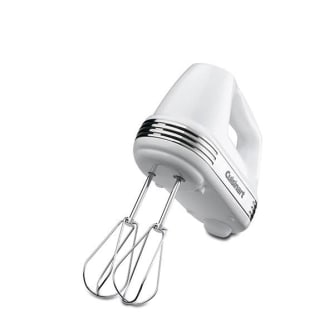
Hand Mixers
These are best for light-duty tasks such as whipping cream or egg whites, mixing cake batter, and making mayonnaise or an aioli from scratch. But they’re not as good as stand mixers at mixing dough.
Most of the top-performing hand mixers have wire beaters without the thick center post found on traditional-style beaters. Wire beaters work well and are easier to clean. Some hand mixers come with additional attachments. To find information on those, go to our ratings, where you can view each model’s specs by scrolling horizontally across the page.
One definite plus is that hand mixers are easy to store and don’t require any counter space.
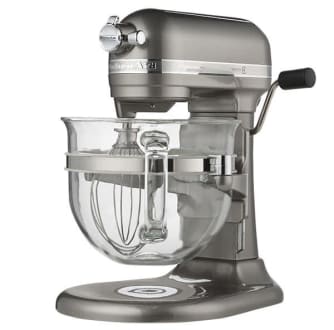
Stand Mixers
Stand mixers can do everything hand mixers can do and are more capable of mixing thick cookie batter and bread dough. But they’re heavier and take up counter space.
Most models use one beater, which spins in one direction and moves around the bowl the opposite way. Some use two beaters, which spin against each other. Light-duty models typically have stationary beaters and a bowl that sits on a revolving turntable.
Our stand mixer ratings provide complete details, including the height and weight of each mixer and which attachments are included.
Features to Consider
Here are a few features worth noting to make mixing a snap, keep it safe, and make cleanup easier.
- 1
- / 5
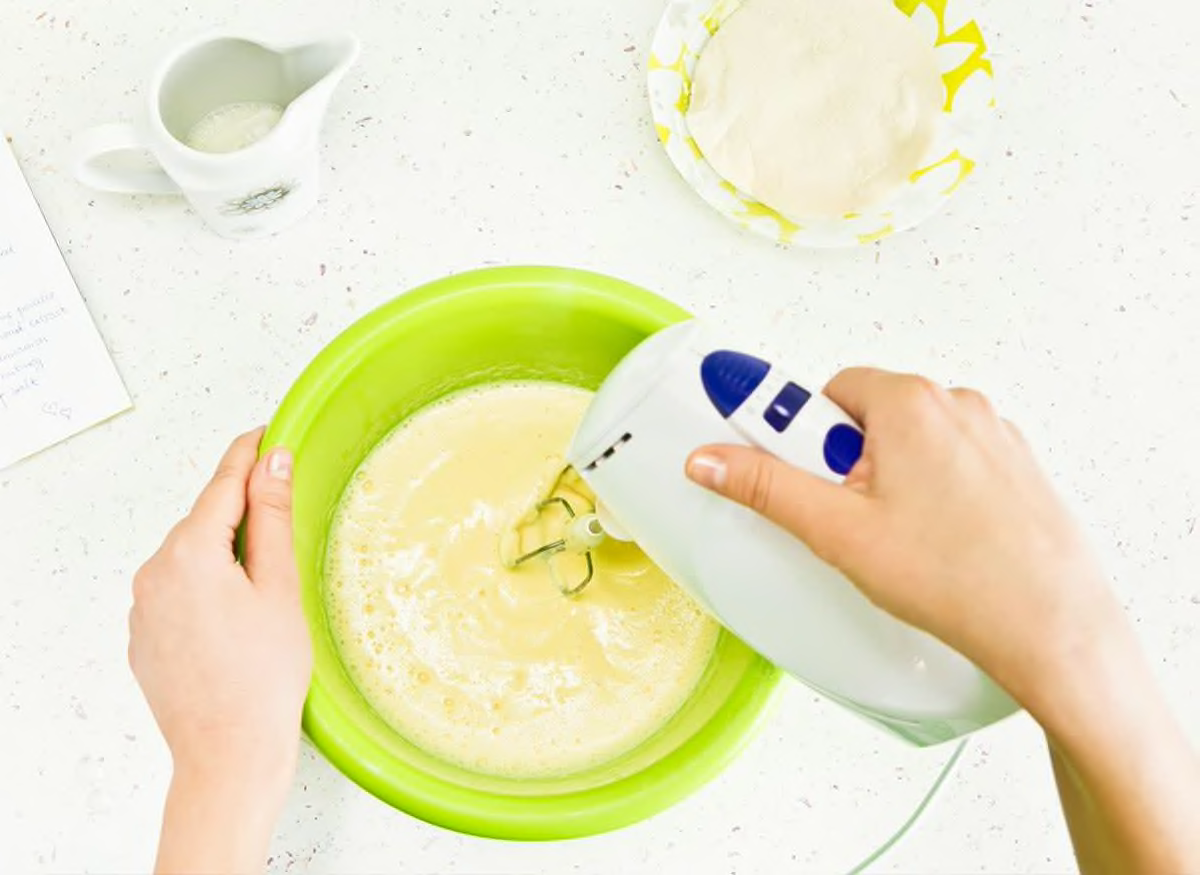
Comfort
A hand mixer should be well-balanced and comfortable to hold. A stand mixer shouldn’t be too heavy for you to lift into and out of a cabinet. (This might not be a concern for people with enough space to leave their mixer out all the time.)
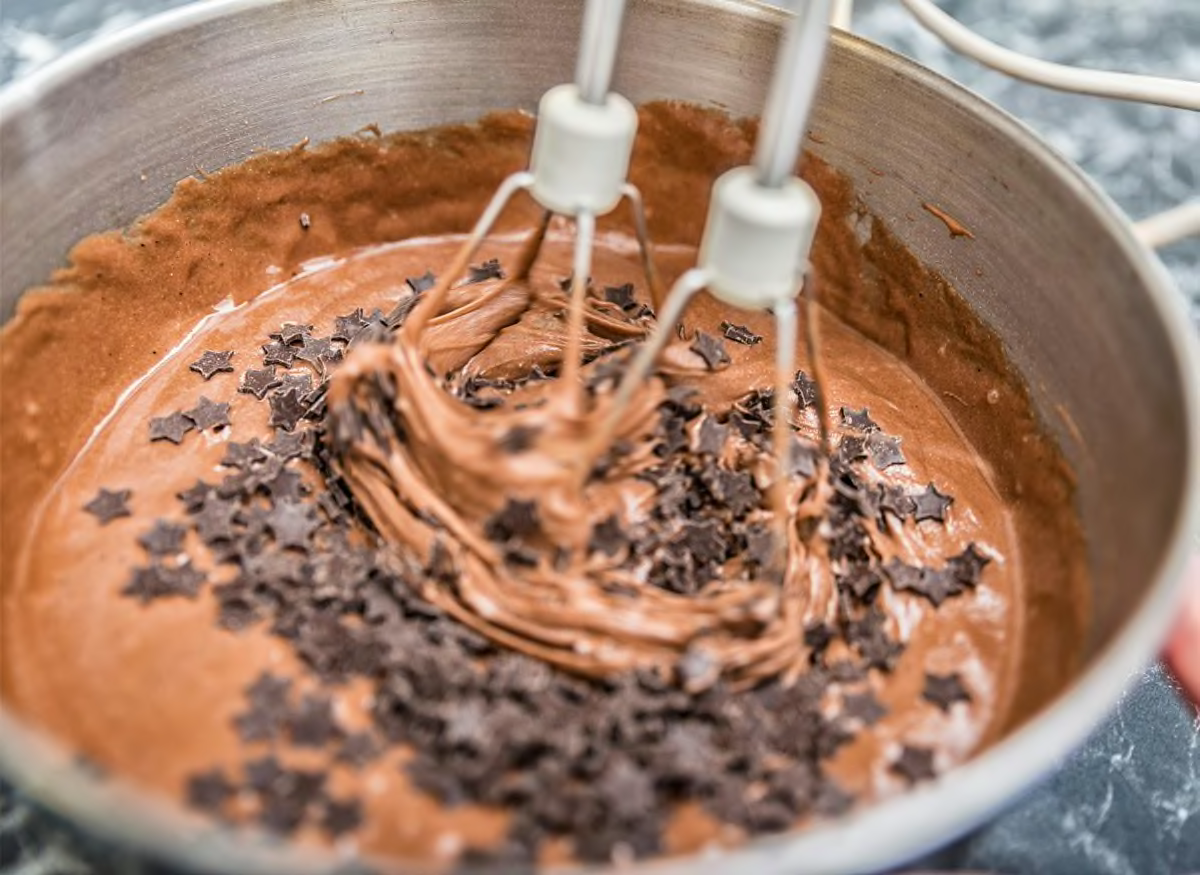
Type of Beater
Look for a mixer that has wire beaters without the thick center post found on traditional-style beaters. Wire beaters are easier to clean.
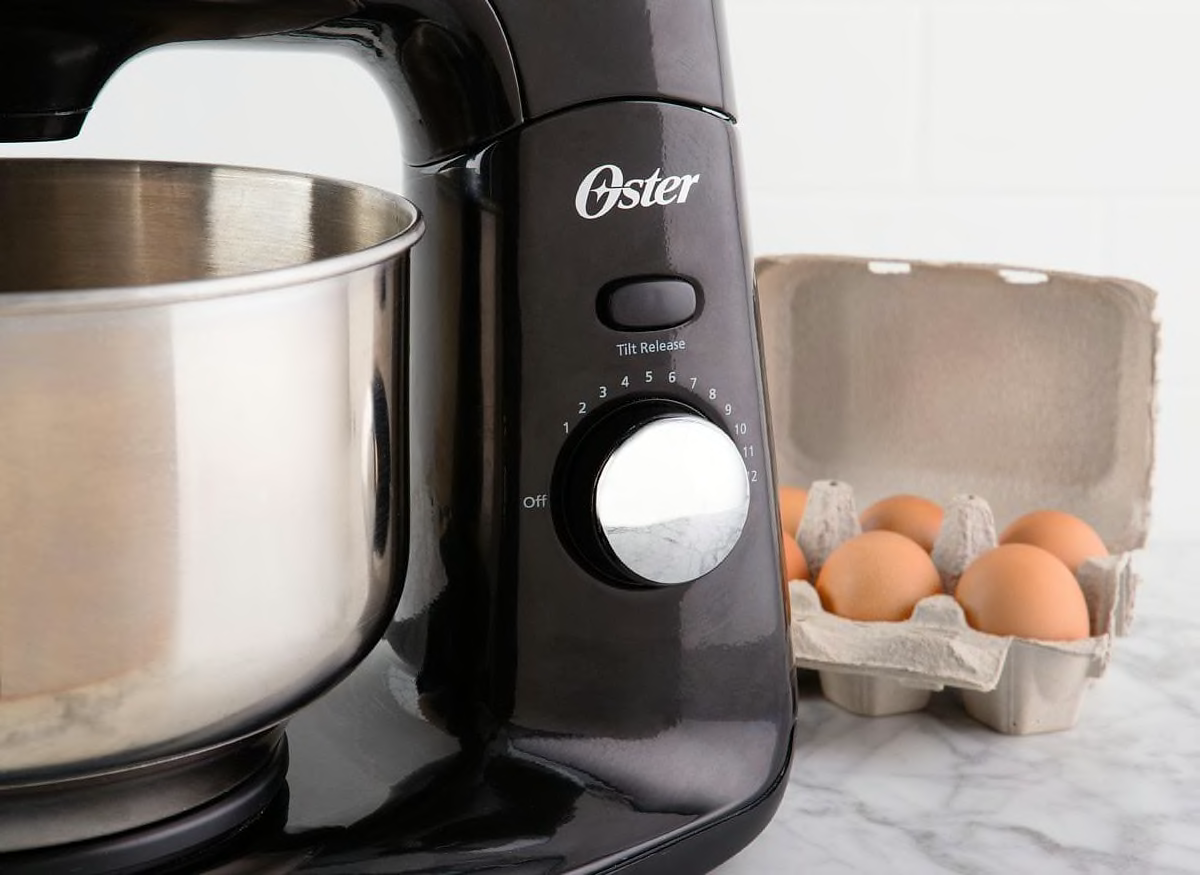
Speed
Some stand mixers have as many as 16 speeds, and some hand mixers have nine or so speed settings. We think three well-differentiated speeds are sufficient. The slower the lowest speed, the better, because slow speeds prevent splattering.
PHOTO: JASON WORRELL
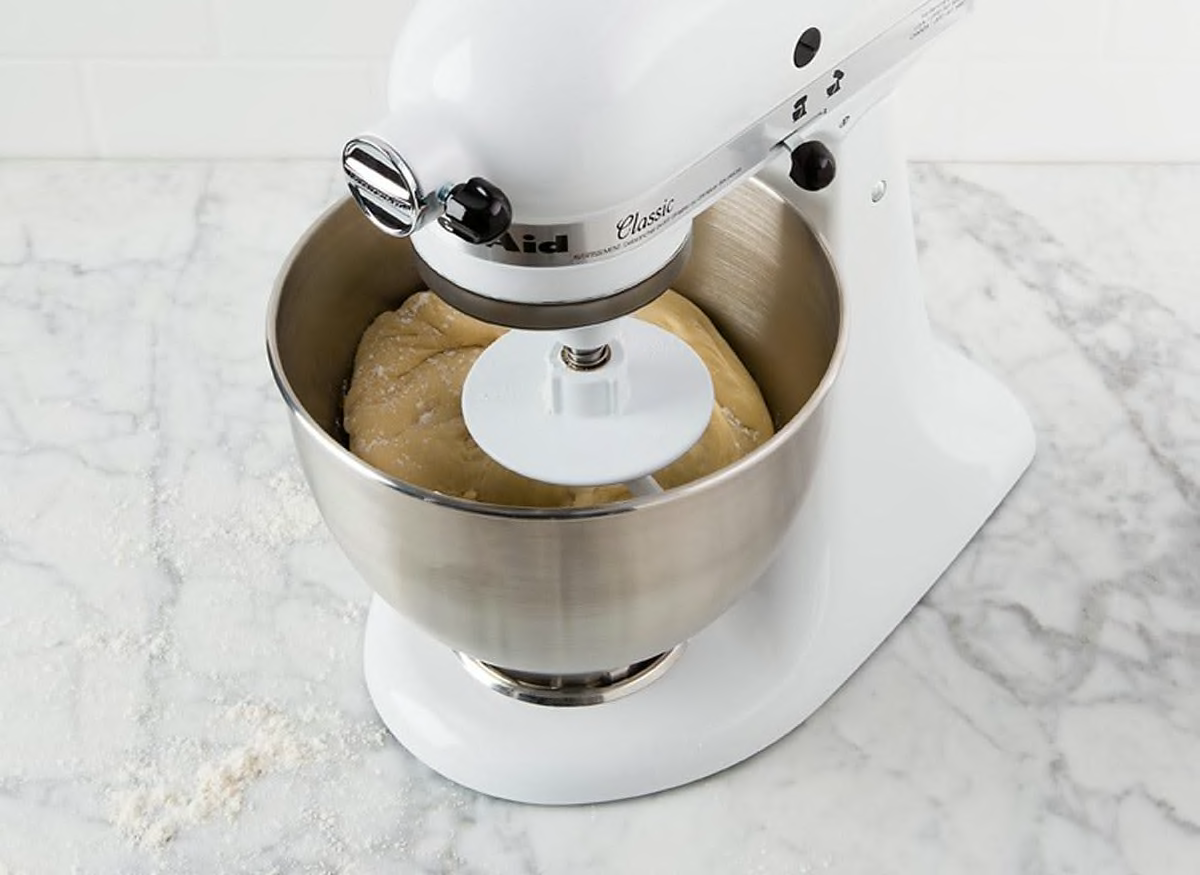
Locking Powerheads
You should be able to lock a mixer’s powerhead in the up position so that it won’t crash into the bowl when the beaters are weighed down with dough. You should also be able to lock it in the down position so that the beaters don’t ride up in the bowl when tackling stiff dough.
PHOTO: JASON WORRELL
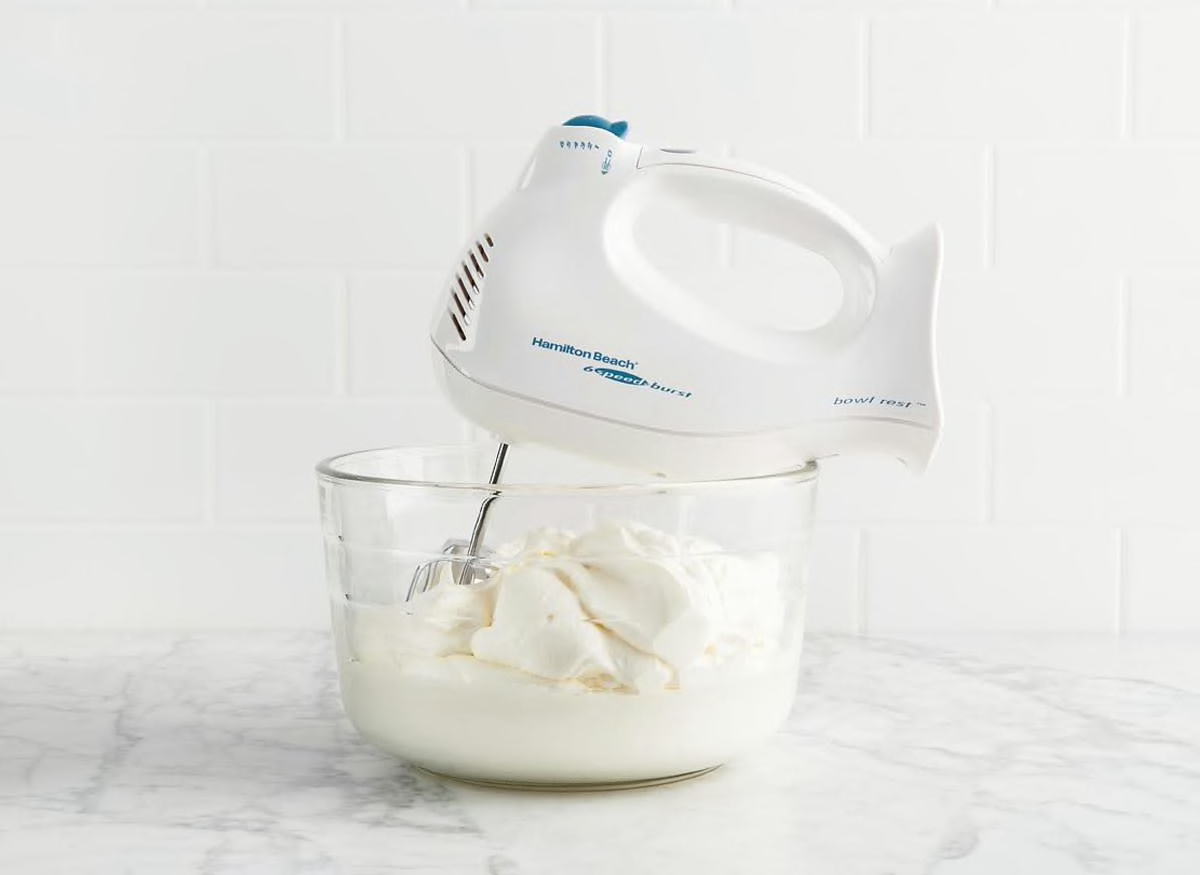
Stability
An indentation on the underside of the motor housing allows a hand mixer to perch on the edge of a bowl so that it doesn’t tip over.
PHOTO: JASON WORRELL
Comfort
A hand mixer should be well-balanced and comfortable to hold. A stand mixer shouldn’t be too heavy for you to lift into and out of a cabinet. (This might not be a concern for people with enough space to leave their mixer out all the time.)
Type of Beater
Look for a mixer that has wire beaters without the thick center post found on traditional-style beaters. Wire beaters are easier to clean.
Speed
Some stand mixers have as many as 16 speeds, and some hand mixers have nine or so speed settings. We think three well-differentiated speeds are sufficient. The slower the lowest speed, the better, because slow speeds prevent splattering.
PHOTO: JASON WORRELL
Locking Powerheads
You should be able to lock a mixer’s powerhead in the up position so that it won’t crash into the bowl when the beaters are weighed down with dough. You should also be able to lock it in the down position so that the beaters don’t ride up in the bowl when tackling stiff dough.
PHOTO: JASON WORRELL
Stability
An indentation on the underside of the motor housing allows a hand mixer to perch on the edge of a bowl so that it doesn’t tip over.
PHOTO: JASON WORRELL
Mixer Brands
KitchenAid owns about half the stand-mixer market; Hamilton Beach is the next bestselling brand. Cuisinart and Ovente are other dominant mixer brands. Use these profiles to compare mixers by brand.
Black+Decker makes an assortment of attractively priced small appliances, including hand mixers. They’re widely available online and at walk-in retailers.
Cuisinart is a perennial big player in the world of small appliances. The company sells hand and stand mixers in a variety of colors. They’re available at department stores, specialty stores, and online retailers.
Hamilton Beach, a widely sold brand in the mixer category, makes hand and stand mixers. They come in various colors and are sold at most kitchen appliance retailers. The company also sells a commercial line of mixers in specialty stores and on Amazon and other online retailers.
This high-end brand is a major player in the mixers market. Its stand mixers are versatile, with various attachments, and come in a wide array of colors. KitchenAid hand and stand mixers are widely available at retailers nationwide.
Ovente is an independent brand offering budget-friendly mixers. They can be found at department stores, home goods stores, and Wayfair. The brand is also popular on Amazon.
Other mixer brands on the market include Bosch, Breville, Kenmore, and Oster.
